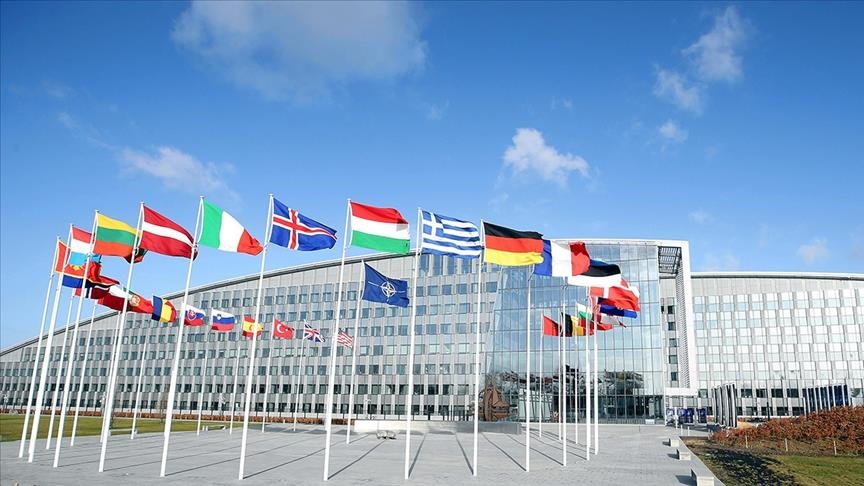NATO marked its 73rd anniversary on Monday as Europe faces security challenges caused by the Russian war on Ukraine, which is regarded by many as the "biggest threat" Europe has faced since the Cold War and the "greatest destruction" witnessed since World War II.
NATO was founded to restructure the security architecture in Western Europe after World War II.
The alliance, which defines its main objective as securing the independence and security of the member countries through military and political means, is perhaps best known for its Article 5, which commits its members to collective defense.
Under Article 5, "the Parties agree that an armed attack against one or more of them in Europe or North America shall be considered an attack against them all."
To date, the article has been invoked precisely once, in the wake of the Sept. 11, 2001 terrorist attacks in the US.
Founded in Washington on April 4, 1949, with 12 founding members, the alliance, currently has 30 members, including longtime pillar Turkey since its membership in 1952.
Furthermore, Germany became a member in 1955 and Spain joined the alliance in 1982. The Czech Republic, Hungary and Poland became members in the 1999 enlargement.
The 2004 expansion included Bulgaria, Estonia, Latvia, Lithuania, Romania, Slovakia and Slovenia. Albania and Croatia joined the alliance in 2009 and Montenegro in 2017.
In 2020, North Macedonia became the 30th member of NATO.
NATO's main headquarters is located in Brussels, where decisions are taken unanimously by its 30 members.
Allies meet at different levels to consult on security issues.
Each year, the foreign ministers of the member states meet two times and the defense ministers four times at the main headquarters.
Leaders of NATO countries also meet at summits held in one of the member countries every 2 years. It functions as a trans-Atlantic forum where its members consult and act jointly on security issues of common interest.
This year, the leaders’ summit will be held in the Spanish capital Madrid on June 29- 30.
